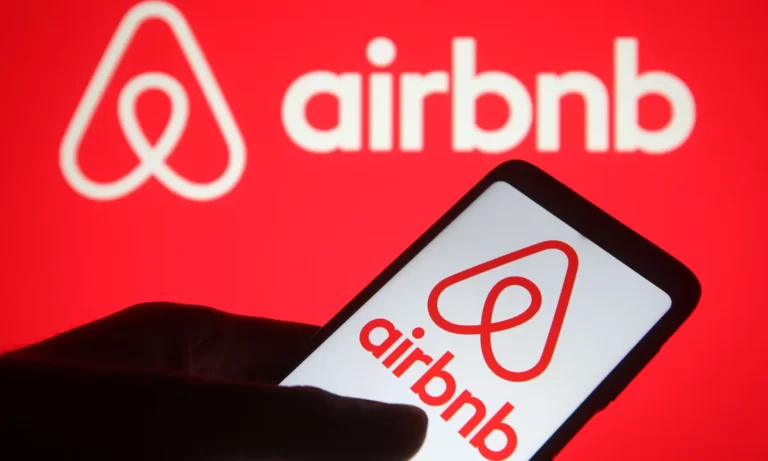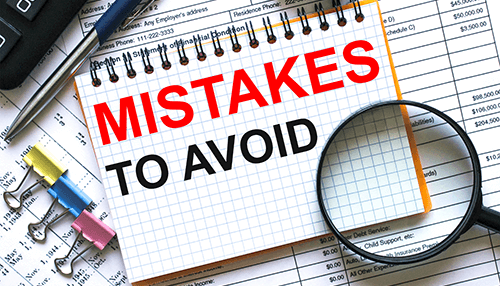Backlinks are an essential component of search engine optimization (SEO), which involves the process of improving a website's visibility and ranking on search engine results pages. Backlinks, also known as “inbound links,” are links from other websites to your website, and they play a critical role in determining the authority and credibility of a website. In this article, we will delve into the practice of buying and selling backlinks, and why it's not advisable to engage in this practice.
Contents
Backlinks and their Importance in SEO
Backlinks are one of the primary factors that search engines use to determine a website's authority, popularity, and relevance. Essentially, backlinks act as votes of confidence for a website, indicating that other websites consider the content valuable and relevant enough to link to. The more high-quality backlinks a website has, the more likely it is to rank higher in search engine results pages. In essence, backlinks are a crucial element of a successful SEO strategy.
Practice of Buying and Selling Backlinks
The practice of buying and selling backlinks involves purchasing or selling links from other websites in an effort to boost a website's SEO ranking. Some people engage in this practice because it seems like an easy way to improve their website's ranking quickly. However, this practice is considered a violation of Google's Webmaster Guidelines, and it can result in severe penalties, including a decrease in ranking or even complete removal from search engine results pages.
Why it's Not Advisable to Buy or Sell Backlinks
Despite the temptation to engage in this practice, buying or selling backlinks is not advisable for several reasons. Firstly, it is a violation of Google's Webmaster Guidelines, which are designed to ensure fair and ethical practices in SEO. Secondly, the links obtained through this practice are often of low quality and do not provide any real value to the website. Finally, buying or selling backlinks can result in severe penalties from search engines, which can have a significant impact on a website's visibility and traffic. Overall, it is not worth the risk of engaging in this practice when there are many other effective and ethical ways to improve a website's SEO ranking.
The Risks of Buying Backlinks
Backlinks are an essential component of a successful SEO strategy. However, not all backlinks are created equal. While high-quality backlinks from reputable sources can boost your website's search engine rankings, low-quality backlinks can do more harm than good.
One common mistake that website owners make is buying backlinks. While it may seem like a quick and easy way to boost your website's ranking, buying backlinks is not a sustainable strategy and can lead to serious risks.
Here are some of the risks associated with buying backlinks:
1. Google Penalties
Google is known for penalizing websites that engage in unethical practices, including buying backlinks. If Google detects that your website is using paid links to manipulate search engine rankings, it can penalize your website by dropping your ranking, removing your website from search results or even banning your website from the search engine altogether.
2. Poor Quality Backlinks
Not all backlinks are created equal. Low-quality backlinks can harm your website's search engine ranking and online reputation. If you buy backlinks, you may end up with links from websites that have been penalized by Google or have a low domain authority. Such links can negatively impact your website's search engine ranking and make it harder for your website to rank for relevant keywords.
3. Wasted Money and Time
Buying backlinks can be expensive, and there's no guarantee that the links you purchase will be effective in boosting your website's search engine ranking. In fact, you may end up wasting your money and time by purchasing links that don't bring any benefits to your website's SEO.
4. Damage to Your Brand Reputation
If you buy backlinks from websites that have a poor reputation or engage in unethical practices, it can damage your brand's reputation. When your website is associated with spammy or low-quality websites, it can harm your credibility and trustworthiness.
In summary, while buying backlinks may seem like a quick and easy way to boost your website's search engine ranking, it can lead to serious risks. Instead of relying on unethical practices, it's better to focus on creating high-quality content and earning natural backlinks from reputable sources. By doing so, you can build a sustainable and effective SEO strategy that will help your website rank higher on search engines and attract more traffic.
The Misconceptions of Buying Backlinks
There are many misconceptions about buying backlinks, and it's important to understand the truth behind them. Here are some of the most common misconceptions:
- “Buying backlinks is a quick and easy way to improve your search engine rankings.”
This is perhaps the most common misconception about buying backlinks. While it's true that backlinks are an important factor in search engine rankings, buying backlinks is not a guaranteed way to improve your rankings. In fact, if you buy low-quality backlinks, it could actually hurt your rankings.
- “Buying backlinks is cheaper than building them organically.”
Buying backlinks may seem like a cheaper and easier way to build your link profile, but it's not a sustainable or effective strategy. Low-quality backlinks can harm your website, and you may end up spending more money in the long run trying to fix the damage.
- “Buying backlinks is not against Google's terms of service.”
This is not true. Google explicitly prohibits the buying and selling of backlinks as it is considered a form of spam. If Google catches you buying or selling backlinks, your website may be penalized or even removed from search results.
- “Buying backlinks is the only way to compete with bigger websites.”
This is a common misconception among smaller websites and businesses. While it's true that larger websites may have more backlinks, buying backlinks is not the solution. Instead, focus on creating high-quality content and building relationships with other websites in your niche.
In summary, buying backlinks is not a sustainable or effective strategy for improving your search engine rankings. It's important to understand the misconceptions surrounding buying backlinks and focus on creating high-quality content and building relationships with other websites in your niche.
The Dangers of Selling Backlinks
Selling backlinks is against the terms of service of major search engines like Google and can lead to penalties, which can negatively impact the credibility and trustworthiness of a website. In this section, we'll explore the risks associated with selling backlinks.
Violation of Search Engines' Terms of Service
Search engines, such as Google, consider selling backlinks as an unethical practice. These search engines are designed to provide users with high-quality, relevant results. However, selling backlinks is seen as a way to manipulate search rankings, which goes against the core principles of these search engines.
As a result, search engines have strict rules against selling backlinks. When these rules are violated, the search engine can impose penalties, which can negatively impact a website's search rankings, visibility, and organic traffic.
Negative Impact on Website's Credibility and Trustworthiness
When a website sells backlinks, it risks compromising the credibility and trustworthiness of its brand. Backlinks are seen as a vote of confidence from one website to another. When a website sells backlinks, it sends a message that it's willing to compromise the quality of its content in exchange for money.
In addition, selling backlinks can lead to an influx of low-quality, spammy links pointing to a website. This can raise red flags with search engines, which can penalize the website for engaging in link schemes. The result is a significant decline in organic traffic and search rankings.
Examples of Harmful Effects
Selling backlinks can have several harmful effects on a website. For example, it can lead to a significant drop in search rankings, which can negatively impact the website's traffic, visibility, and ultimately, revenue.
Furthermore, a website that sells backlinks may also be flagged as spammy, which can result in search engines blacklisting it. Being blacklisted by search engines means that a website won't show up in search results, which can be disastrous for any website that relies on search engine traffic.
In addition, selling backlinks can also harm a website's reputation. As more users become aware of the shady practices, the website can be perceived as less trustworthy, which can impact its ability to attract and retain customers.
In summary, selling backlinks is a dangerous practice that can lead to severe penalties and a significant decline in organic traffic and search rankings. Rather than focusing on quick wins, website owners should focus on building a sustainable SEO strategy that prioritizes high-quality, organic backlinks.
Alternatives to Buying and Selling Backlinks
As we've seen, buying and selling backlinks can be a risky and potentially harmful practice for your website's search rankings and overall credibility. But the good news is that there are plenty of legitimate alternatives to consider that can help you achieve the same results without resorting to questionable tactics.
White Hat Link Building Techniques
One of the most effective and widely used alternatives to buying and selling backlinks is what's known as white hat link building. This approach involves creating high-quality, original content that people will naturally want to link to and share with others.
Some effective white hat link building techniques include:
- Guest Blogging – Guest blogging involves writing high-quality content for another website and including a link back to your own site. This is a great way to get exposure to a new audience and build high-quality backlinks that can help improve your search rankings.
- Creating Infographics – Infographics are a visually appealing and engaging way to present information to your audience. By creating original infographics and sharing them on your website and social media, you can attract links and build your backlink profile in a natural and legitimate way.
- Broken Link Building – This technique involves finding broken links on other websites and offering to replace them with your own high-quality content. By doing this, you can not only build valuable backlinks but also help other website owners improve the user experience for their audience.
The Benefits of Earning Backlinks
In addition to being a more legitimate approach to link building, earning backlinks through white hat techniques can have a number of additional benefits for your website:
- Increased Credibility – By earning backlinks from reputable sources, you can build credibility and authority in your niche, making it more likely that others will link to your content in the future.
- Improved Search Rankings – Backlinks remain a critical factor in search engine algorithms, and earning high-quality backlinks can help improve your search rankings and increase your visibility in search results.
- More Traffic – By attracting links from high-quality sources, you can also drive more targeted traffic to your website, increasing your overall reach and engagement.
Other Ways to Increase Website Traffic
In addition to link building, there are a number of other effective strategies you can use to increase traffic to your website:
- Social Media Marketing – By creating engaging and shareable content and sharing it on social media, you can attract more followers and drive more traffic to your website.
- Paid Search Advertising – If you're looking to increase traffic quickly, paid search advertising can be an effective option. By targeting specific keywords and demographics, you can reach your ideal audience and drive more traffic to your site.
While buying and selling backlinks may seem like an easy way to boost your search rankings, the risks and potential consequences make it a dangerous practice. By focusing on white hat link building techniques and other legitimate strategies, you can build a strong, credible online presence that will benefit your website in the long term.
Final Thoughts
In conclusion, buying or selling backlinks might seem like an easy way to increase your website's search engine ranking and drive traffic to your site. However, it comes with significant risks that can harm your online presence and credibility. Instead, using legitimate and ethical link building techniques can lead to long-term success for your website.
By focusing on creating quality content, engaging with your audience, and earning backlinks through legitimate means, you can build a strong foundation for your website's SEO ranking. It's important to remember that sustainable and ethical SEO practices are the key to long-term success, rather than trying to cheat the system through quick fixes like buying or selling backlinks.
We encourage all website owners and marketers to prioritize ethical and sustainable SEO practices, and to resist the temptation of buying or selling backlinks. By doing so, you can build a strong online presence that attracts and retains loyal customers and followers, and ultimately drives business success.
FAQs
1. What are backlinks and why are they important for SEO?
Backlinks are links from other websites that direct traffic to your website. They are important for SEO because search engines like Google use backlinks to determine the credibility and authority of a website.
2. Is buying backlinks illegal?
No, buying backlinks is not illegal. However, it is against the terms of service of major search engines like Google and can result in penalties or even a ban from search results.
3. Why do people buy backlinks if it's against the terms of service?
People buy backlinks because they believe it can help improve their search rankings and drive more traffic to their website. However, this is a risky and unethical practice.
4. Can buying backlinks harm my website's search rankings?
Yes, buying backlinks can harm your website's search rankings. If search engines like Google detect that you are using unnatural means to acquire backlinks, your website may be penalized and drop in search results.
5. What are some white hat link building techniques that I can use instead of buying backlinks?
Some white hat link building techniques include creating quality content, engaging with your audience on social media, and reaching out to other websites in your industry to request a link.
6. Can selling backlinks harm my website's search rankings?
Yes, selling backlinks can harm your website's search rankings. Search engines like Google view selling backlinks as a violation of their terms of service and can penalize your website accordingly.
7. Is it ever okay to buy or sell backlinks?
No, it is not okay to buy or sell backlinks. It is an unethical and risky practice that can harm your website's search rankings and credibility.
8. What is the difference between black hat and white hat SEO practices?
Black hat SEO practices are unethical and aim to manipulate search engines for quick results, while white hat SEO practices are ethical and focus on creating quality content and improving the user experience.
9. How can I improve my website's search rankings without buying or selling backlinks?
You can improve your website's search rankings by creating high-quality, relevant content, optimizing your website for search engines, engaging with your audience on social media, and earning backlinks through legitimate means.
10. Why is it important to use ethical and sustainable SEO practices?
Using ethical and sustainable SEO practices is important because it helps build credibility and trust with your audience, improves the user experience, and creates a more sustainable and long-term strategy for improving your search rankings.






